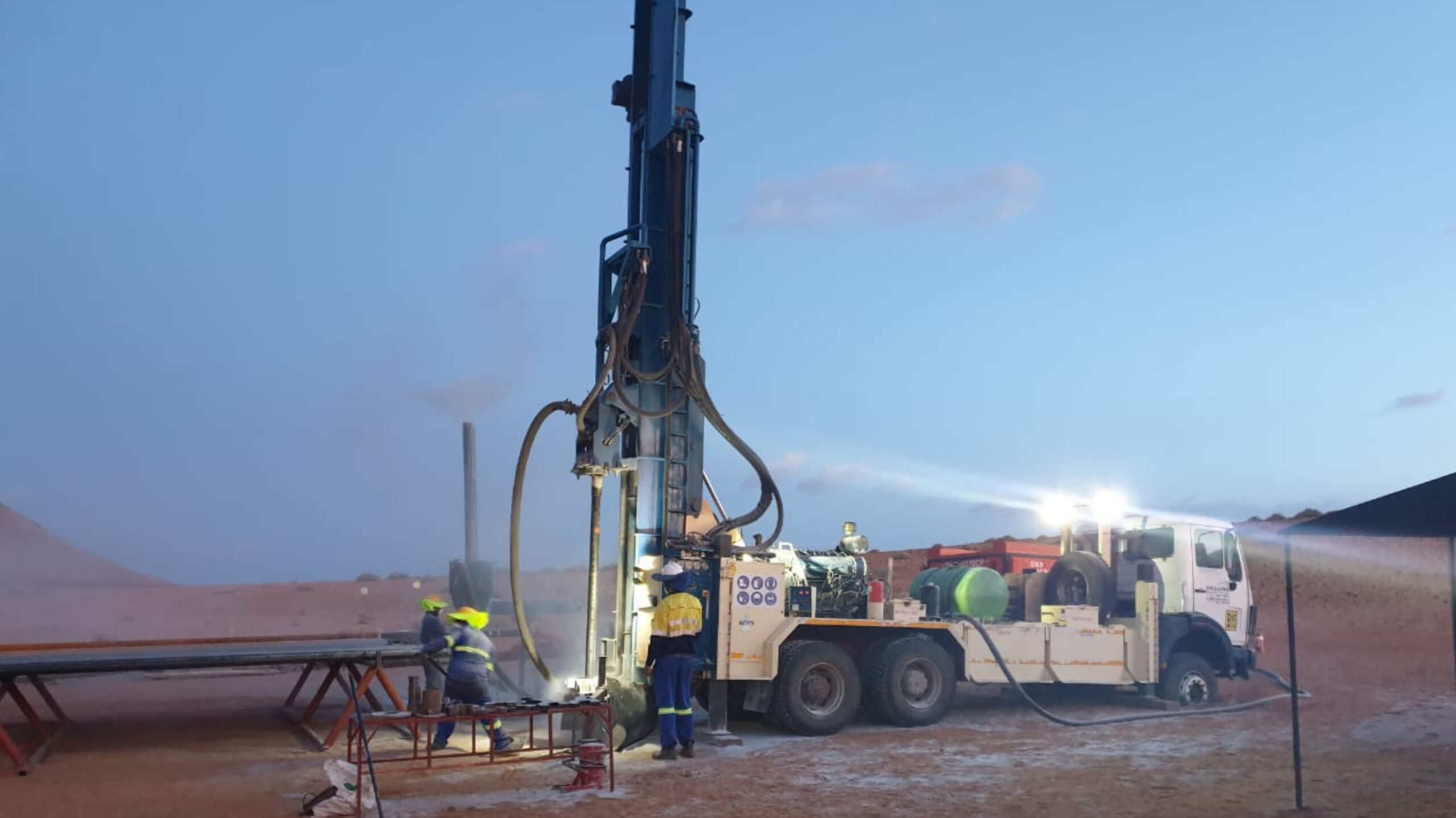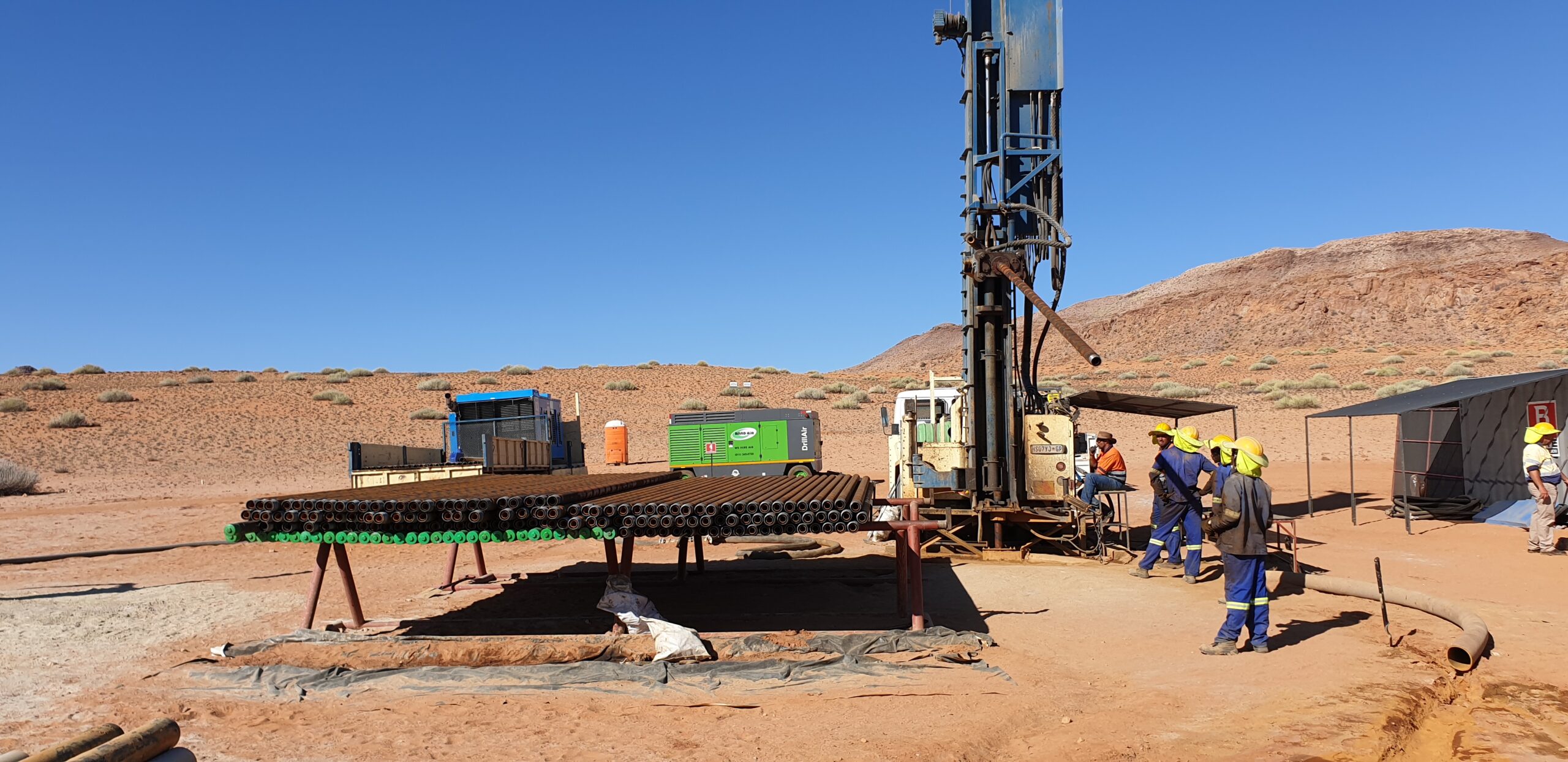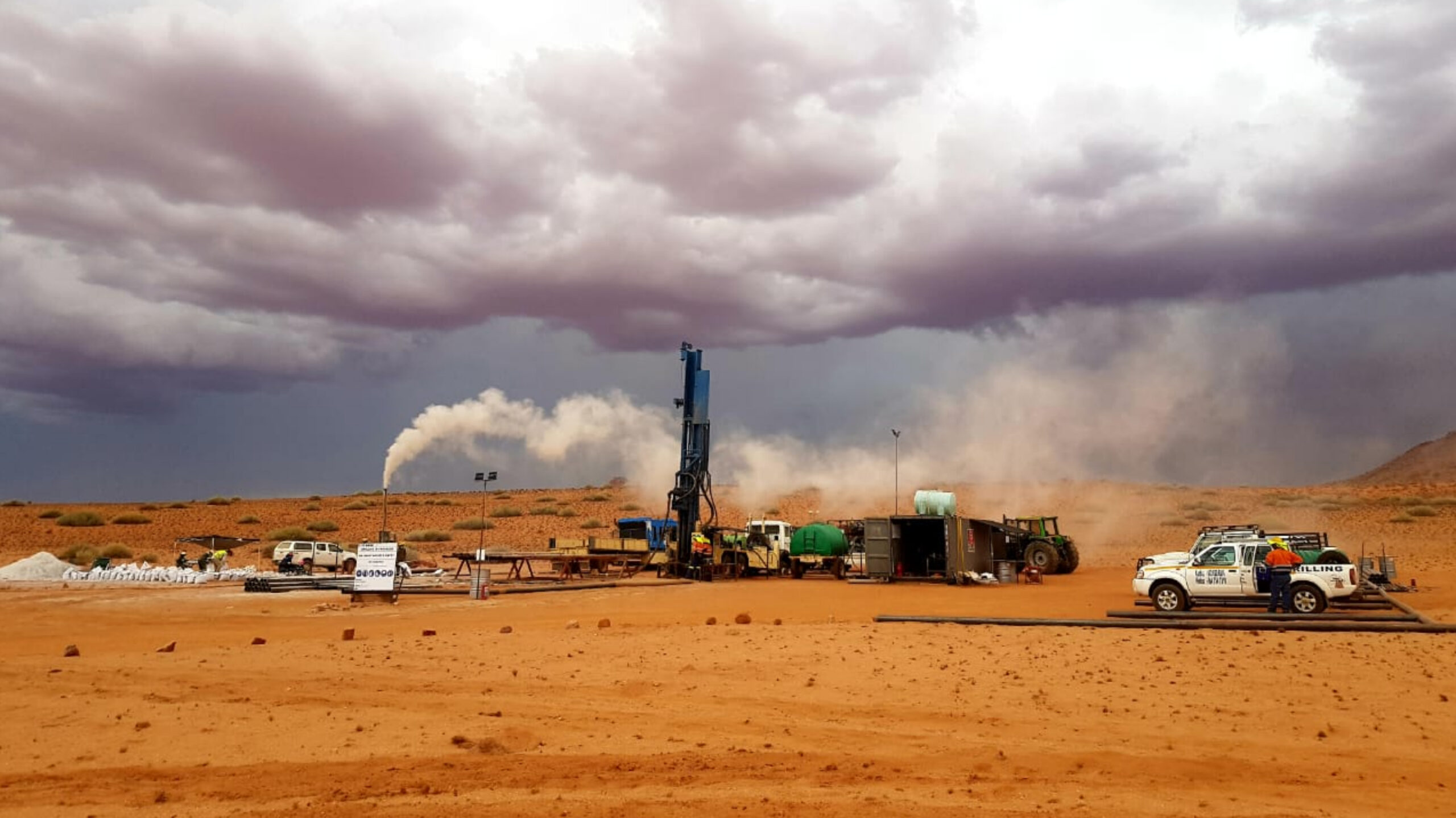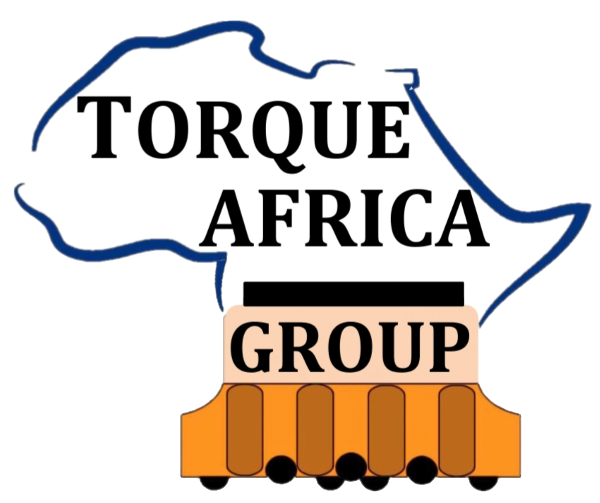


In 2020, Torque Africa set a new world record by successfully drilling the deepest reverse circulation (RC) hole to an astounding depth of 1019 meters in Amam, Northern Cape, South Africa. Remarkably, this feat was accomplished in just nine days of continuous drilling, showcasing the company’s unparalleled expertise and efficiency.
Reaching such incredible depths requires meticulous planning, extensive experience, and a deep understanding of ground conditions. Torque Africa’s success in this ambitious project is a testament to the company’s commitment to excellence and innovation in drilling technology. The project was personally led by Nardus Bezuidenhout, the Group Director, who brings hands-on leadership to every undertaking, ensuring that each project meets the highest standards of quality and precision.
Bezuidenhout’s direct involvement in the project underscores his dedication to guiding the team through the complexities of deep drilling operations. His expertise and strategic oversight were pivotal in navigating the challenges posed by the varied geological formations encountered during the drilling process.
The success of this project not only sets a new benchmark in the industry but also reinforces Torque Africa’s reputation as a leader in advanced drilling solutions. The company’s ability to achieve such a record-breaking depth in a short timeframe highlights its capability to undertake and complete high-stakes projects efficiently.
This milestone in Amam is more than just a record; it exemplifies the meticulous preparation, technical proficiency, and relentless drive that define Torque Africa. As the company continues to push the boundaries of what is possible in drilling, it remains committed to delivering outstanding results for its clients, solidifying its position at the forefront of the drilling industry.
Successfully drilling the world’s deepest reverse circulation (RC) hole to a depth of 1019 meters in just nine days is a testament to our meticulous planning, advanced technology, and unwavering commitment to excellence
NARDUS BEZUIDENHOUT – Group director
Setting up camp over 120 km from the nearest town along drifting dirt roads is no small feat. In such remote locations, even with extensive planning and logistics, fuel and water are precious resources that cannot be wasted. As the saying goes, time is money, and the longer these resources remain on-site, the higher the total project cost. When drilling exploration holes to depths of 1000 meters or more, it is not uncommon to be on site for up to three months.
Traditionally, this timeline is based on using diamond coring systems, known for their reliability in deep-hole drilling but at a significant cost. Diamond coring also requires expensive muds to stabilize the hole, which can be wasted if underground cavities are encountered or potentially contaminate aquifers.
For this project, however, Torque Africa chose to use the Mincon MR range of exploration tools. These reverse-circulation (RC) tools, an air-powered variation of the down-the-hole (DTH) hammer, flush cuttings through an inner tube. Until recently, such RC systems were used for drilling up to 500 or 600 meters. However, improvements to Mincon’s RC hammers allowed for deeper drilling.
Drilling commenced on the afternoon of 17 February 2020, using a Mincon MR120 RC hammer and a 143 mm drill bit. Progress was methodical to ensure safety and functionality. After reaching a depth of 114 meters, the team retrieved the drill string and reamed the first 4 meters of the hole to install a temporary casing, stabilizing the soft ground near the surface to prevent collapse. Drilling resumed with a new 140 mm RC drill bit, equipped with polycrystalline diamond-impregnated carbide buttons.
Over the next four days, drilling operations continued during daylight hours, averaging 120 meters per day. At 637 meters, the drill string was retrieved to change sample tubes and swap to a new 137 mm RC drill bit, both wear components.
Retrieving a drill string is straightforward but time-consuming. Each pipe must be lifted out of the hole, unscrewed, removed, and the remaining pipes reattached, six meters at a time, for the entire length of the drill string—over 600 meters at this point. Deep-hole drilling can become incredibly expensive if multiple drill-string retrievals are required, but this can be offset by using durable, reliable equipment that consistently delivers high performance.
On the eighth day of the project, Torque Africa resumed drilling with the fresh 137 mm drill bit, the third bit used for the project. To reduce time on-site, the team switched to a 24-hour drilling schedule.
In just two days, the team drilled through 382 meters of hard granite and groundwater, reaching a depth of 1019 meters. This achievement marked one of the deepest exploration holes drilled using air RC tools, putting the technology on par with diamond coring for deep-hole drilling.
With the target depth reached, the drill string was retrieved for final inspection, showing only expected wear and no failures. A post-drilling survey verified the depth and straightness of the shaft, with a deviation of only 0.83°, surpassing the performance of competing technologies and proving another benefit of air RC systems.
A record-depth hole drilled in record time would be pointless if sample cuttings were unusable. Fortunately, the air RC approach consistently returned uncontaminated sample cuttings to the surface, as cuttings were flushed up through a sample tube rather than being exposed to the drilled hole.
Bezuidenhout noted that samples continued to be collected even after encountering extensive groundwater at 886 meters. For every meter drilled, a sample was collected, bagged, and tagged, allowing geologists to analyze ground conditions and mineral content. This project not only showcased Torque Africa’s technical expertise and efficiency but also highlighted the advantages of modern RC drilling technology in achieving remarkable depths quickly and effectively.
